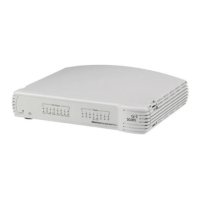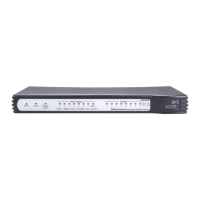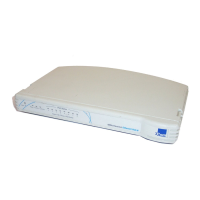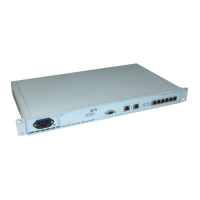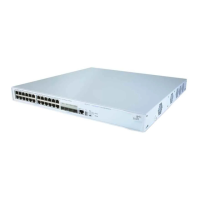232 APPENDIX B: DEVICE SPECIFICATIONS AND FEATURES
MAC Address Capacity Support The device supports up to 8K MAC addresses. The device reserves specific
MAC addresses for system use.
MAC Multicast Support Multicast service is a limited broadcast service, which allows one-to-many
and many-to-many connections for information distribution. Layer 2
Multicast service is where a single frame is addressed to a specific
Multicast address, from where copies of the frame are transmitted to the
relevant ports.
MDI/MDIX Support The device automatically detects whether the cable connected to an RJ-45
port is crossed or straight through, when auto-negotiation is enabled.
Standard wiring for end stations is Media-Dependent Interface (MDI) and
the standard wiring for hubs and switches is known as Media-Dependent
Interface with Crossover (MDIX).
Password Management Password management provides increased network security and improved
password control. Passwords for HTTP, HTTPS, and SNMP access are
assigned security features. For more information on Password
Management, see
“Default Users and Passwords” page 33.
Port-based Authentication Port-based authentication enables authenticating system users on a
per-port basis via an external server. Only authenticated and approved
system users can transmit and receive data. Ports are authenticated via
the Remote Authentication Dial In User Service (RADIUS) server using the
Extensible Authentication Protocol (EAP).
Port-based Virtual LANs Port-based VLANs classify incoming packets to VLANs based on their
ingress port.
Port Mirroring Port mirroring monitors and mirrors network traffic by forwarding copies
of incoming and outgoing packets from a monitored port to a monitoring
port. Users specify which target port receives copies of all traffic passing
through a specified source port.
Power over Ethernet Provides power to devices over LAN connection.
RADIUS Clients RADIUS is a client/server-based protocol. A RADIUS server maintains a
user database, which contains per-user authentication information, such
as user name, password and accounting information.
Rapid Spanning Tree Spanning Tree can take 30-60 seconds for each host to decide whether its
ports are actively forwarding traffic. Rapid Spanning Tree (RSTP) detects
uses of network topologies to enable faster convergence, without
creating forwarding loops.
Remote Monitoring Remote Monitoring (RMON) is an extension to SNMP, which provides
comprehensive network traffic monitoring capabilities (as opposed to
SNMP which allows network device management and monitoring).
RMON is a standard MIB that defines current and historical MAC-layer
statistics and control objects, allowing real-time information to be
captured across the entire network.
Self-Learning MAC Addresses The device enables automatic MAC address learning from incoming
packets. The MAC addresses are stored in the Bridging Table
Table 13 Features of the OfficeConnect Managed Fast Ethernet PoE Switch (continued)
Feature Description
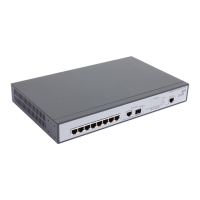
